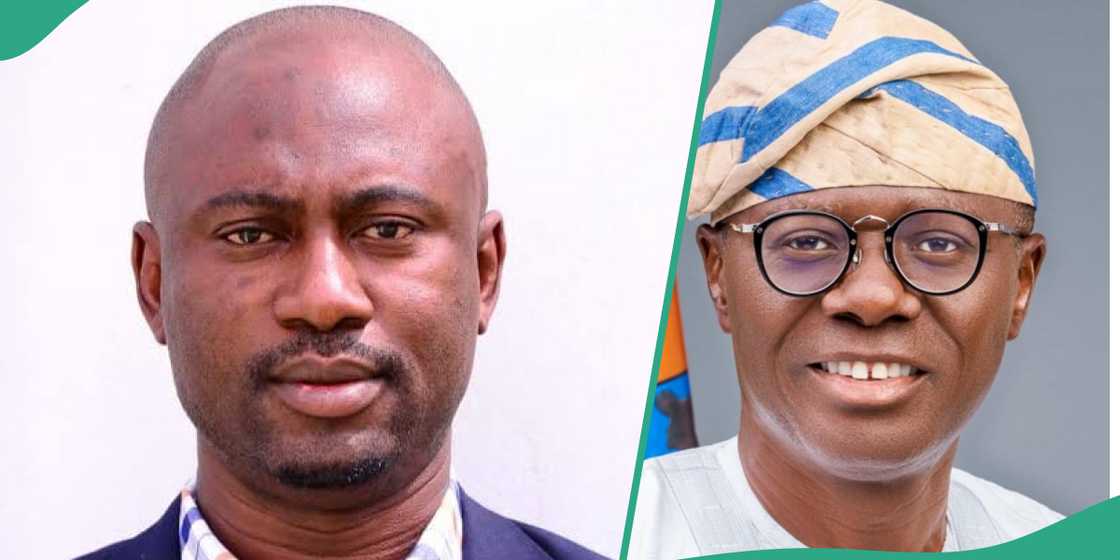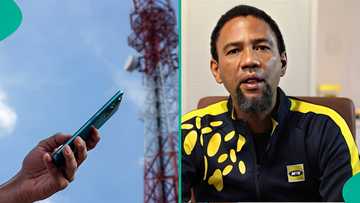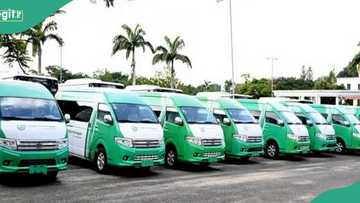Exploring Nigeria’s Commercial Capital, Lagos' Waste-to-Energy Potential for Climate Change Relief
- Being a coastal city, several serious environmental consequences can be encountered in Lagos
- The popular cosmopolitan city which is home to diverse Nigerians needs to do more as the water level rises
- In an exclusive session with Legit.ng, a top environmental expert, Engineer Yusuf Majolagbe, pointed out that climate change affects the environment in different ways, including sea level rise, increasing temperatures, flooding, and more
Legit.ng journalist Ridwan Adeola Yusuf has over 9 years of experience covering energy and environmental issues.
Ikeja, Lagos state - In Lagos state, the heartbeat of Africa's most populous country, Nigeria, improper waste disposal is a contributor to excess gases entering the atmosphere and causing environmental problems.
Waste management systems deemed second-rate have been linked to climate change aggravation which experts say threatens public health.

Source: Facebook
Although the Lagos state government is putting in efforts to protect the environment, there are still some challenges. With public understanding and innovations, authorities can do better.
Granting an unshared audience to Legit.ng, Engr. Yusuf Majolagbe, the chairman of the Nigerian Institution of Environmental Engineers (NIEE), Lagos chapter, advocated the waste-to-energy model, also known as turning trash into power. According to him, this is a strategy that can be strengthened by the Babajide Sanwo-Olu-led government.
“Number one is that the Lagos state government received funding from Harvest Waste Consortium to the tune of €120 million to convert waste to electricity. What that means is that along the value or service chain, there would be an increased need to ensure the effective collection of these wastes. Now, the waste has a high-calorie value. So these wastes can generate more energy into the waste generation system,” Majolagbe told Legit.ng.
It is important that once this kind of funding comes in, and the moment such collaboration is in existence, the value chain would be monitored from end-to-end to ensure that wastes are effectively collected and that they are being processed as a resource utilisation means.
Emerging technologies for decentralised electricity generation as well as new solutions give cities an important opportunity to accelerate the shift away from centralised, power systems. Majolagbe explained that Lagos is in collaboration with the globally-renowned C40 concerning the conversion of organic waste generated from markets into biogas used for electricity. This is to manage sanitisation, which cuts across solid and liquid wastes.
He said: “So, there is a lot Lagos state government is doing now to ensure that all of our wastes do not just end up in our environment, to ensure that they are being collected in sanitary dumpsites, and not just that, there are material recovery facilities that take up waste for utilisation.”
Sustainable environmental protection in coastal Lagos
Despite the phenomena of littered streets in some areas and blocked drainages due to indiscriminate waste disposal and plastic waste, Majolagbe backed the decision of the Lagos state government not to return to monthly environmental sanitation.
He reasoned: “Looking at it from the economic perspective, Lagos cannot afford to lose hours to downtime of not having activities going on, particularly on a Saturday morning. But the key thing to be done is to ensure that all of these collaboration as it has been mentioned earlier begins to take place. And then, there are more interventions and strategic plans to achieve these goals.
“One of the first steps is the ban on styrofoam which has been done. The second step is to ensure that grants are given for recycling of wastes, and proper legislation, and policies are in place to get this done. So, I believe that Lagos is in the right state.”
Need for Lagos to battle climate change challenges
Climate change affects everyone in some way, and the impacts are already being felt around the world.
As a highly vulnerable coastal state with a growing population, Engr. Majolagbe stressed that safeguarding seaside cities from climate change is essential.
“There is a lot of concern on issues of inaction if Lagos does not take substantial steps on climate change. Lagos is a coastal city, and what it means is that as we have sea level rises, a number of serious consequences can be experienced," he warned.
"Lagos is coming a bit below the water levels and goes in inch by inch, year by year. It is important that Lagos begin to do something because the effect is that there is going to be loss of lives and property. There is going to be a loss of economic activities, and people will not be able to access hospitals in those areas. And this has been estimated by Bouston Consulting Group to be a whopping $34 billion if the state does not do anything about climate change. So, the cost of climate change is high.”
Majolagbe concluded:
"We need to build a resilient infrastructure to ensure that Lagos is able to mitigate climate change and ultimately, meet up with the sustainable development goal 2030 which is on climate action.”
Air pollution associated with respiratory disease
Earlier, Legit.ng noted Majolagbe's remarks about Lagos enduring a difficult battle with pollution over the years.
The Lagos NIEE chief stated that pollution is a major problem in many cities around the world, but it is especially bad in some of the world’s biggest cities like Lagos.
Source: Legit.ng






